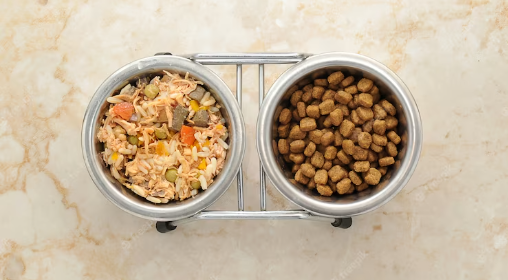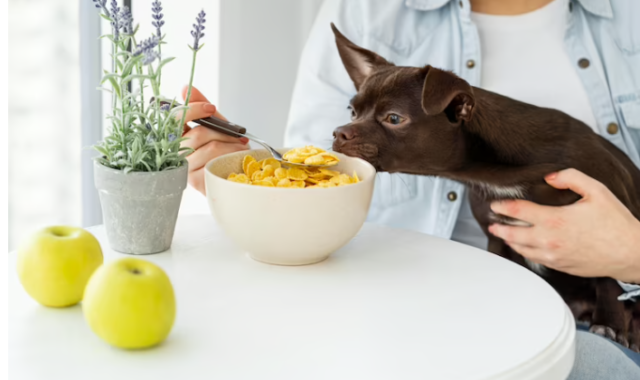Introduction
When it comes to raising a Pitbull puppy, providing them with the best nutrition is essential for their growth and development. The right dog food plays a crucial role in ensuring your Pitbull puppy receives the necessary nutrients for optimal health. In this guide, we will explore the top considerations for selecting the best dog food for Pitbull puppies, including ingredients, nutritional requirements, and specific brands that excel in providing balanced nutrition.
Understanding Pitbull Puppies’ Nutritional Needs
As energetic and robust breeds, Pitbull puppies have unique nutritional requirements. They require a balanced diet rich in protein, healthy fats, vitamins, and minerals to support their muscle development and maintain a healthy weight. Adequate levels of calcium and phosphorus are also crucial for the proper growth and strengthening of their bones.

High-Quality Protein Sources
Pitbull puppies thrive on diets with high-quality protein sources. Look for dog food that lists meat as the primary ingredient, such as chicken, turkey, or beef. These protein sources provide essential amino acids necessary for muscle growth and repair. Avoid dog foods that contain meat by-products or fillers, as they offer lower nutritional value.
Essential Fats for Pitbull Puppies
Including healthy fats in your Pitbull puppy’s diet is vital for their overall health. Look for dog food that contains omega-3 and omega-6 fatty acids, which promote healthy skin and a shiny coat. Salmon oil, flaxseed, and chicken fat are excellent sources of these essential fats. A proper balance of fats also helps support brain development and immune function in Pitbull puppies.
Avoid Artificial Additives and Fillers
To ensure your Pitbull puppy receives the highest quality nutrition, avoid dog foods that contain artificial additives, preservatives, and fillers. These additives can be detrimental to your puppy’s health and may lead to allergies or digestive issues. Opt for natural dog food options that prioritize wholesome ingredients and do not contain unnecessary additives.
Tailored Nutritional Formulas
Consider choosing dog food specifically formulated for Pitbull puppies. These formulas take into account the breed’s unique nutritional requirements, ensuring your puppy receives the right balance of nutrients for its growth and development. Look for labels that mention “Puppy” or “All Life Stages” to ensure the food meets the needs of your Pitbull puppy.
Best Dog Food Brands for Pitbull Puppies
Feeding Schedule and Portion Control
Establishing a regular feeding schedule is important for Pitbull puppies. Divide their daily recommended portion into several small meals throughout the day to aid digestion and prevent bloating. Follow the guidelines provided by the dog food manufacturer and adjust portion sizes based on your puppy’s growth and activity level.
Hydration is Key
Always ensure your Pitbull puppy has access to fresh, clean water. Staying hydrated is essential for their overall health and digestion. Monitor their water intake and refill the bowl regularly, especially during hot weather or after playtime.
Transitioning to New Dog Food
When introducing a new dog food to your Pitbull puppy, do so gradually to avoid any digestive issues. Start by mixing a small portion of the new dog food with their current food. Gradually increase the proportion of the new food over a period of 7 to 10 days until your Pitbull puppy is solely eating the new dog food. This slow transition helps their digestive system adjust to the new food without causing any stomach upset.
Regular Monitoring and Consultation
Monitor your Pitbull puppy’s weight, coat condition, and overall health regularly. If you notice any changes or concerns, consult with your veterinarian. They can provide valuable insights and recommend adjustments to your puppy’s diet if necessary.
Training Treats and Snacks
While selecting the best dog food for your Pitbull puppy, don’t forget to consider their training treats and snacks. Look for healthy options that are made with quality ingredients and provide nutritional benefits. Avoid treats that are high in calories, sugar, or artificial additives, as they can contribute to weight gain and potential health issues.

Homemade Dog Food Considerations
If you prefer to prepare homemade dog food for your Pitbull puppy, it is crucial to consult with a veterinary nutritionist to ensure you provide a nutritionally balanced diet. Homemade dog food requires careful planning and knowledge of appropriate ingredient ratios to meet your puppy’s specific nutritional needs.
Common Pitbull Puppy Food Allergies
Pitbull puppies, like any other breed, can develop food allergies or sensitivities. Common allergens include grains, certain meats, and artificial additives. If you suspect your puppy has food allergies, consult with your veterinarian to determine the best course of action and explore hypoallergenic dog food options.
Conclusion
Choosing the best dog food for your Pitbull puppy is crucial for their health and well-being. Prioritize high-quality protein sources, and essential fats, and avoid artificial additives and fillers. Consider tailored nutritional formulas and reputable brands that cater to Pitbull puppies’ unique needs. Monitor your puppy’s weight and overall health regularly, and consult with your veterinarian for personalized advice. With the right nutrition, your Pitbull puppy will thrive and grow into a healthy, happy adult companion.
FAQs
Q1: How often should I feed my Pitbull puppy?
Pitbull puppies typically require three to four meals per day, gradually reducing to two meals as they grow older. Follow the feeding guidelines provided by the dog food manufacturer and adjust based on your puppy's age, weight, and activity level.
Q2: Can I feed my Pitbull puppy adult dog food?
It is recommended to feed your Pitbull puppy a puppy-specific or all-life stages dog food until they reach their full adult size. Puppy formulas are specially designed to meet their unique nutritional needs for growth and development.
Q3: Should I feed my Pitbull puppy a raw food diet?
Raw food diets can be controversial and require careful handling and preparation to ensure proper nutrition and minimize health risks. Consult with your veterinarian to determine if a raw food diet is suitable for your Pitbull puppy.
Q4: Are grain-free diets suitable for Pitbull puppies?
Recent studies have raised concerns about the potential link between grain-free diets and heart disease in dogs. It is best to consult with your veterinarian to determine the most appropriate diet for your Pitbull puppy's specific needs.
Q5: How can I tell if my Pitbull puppy is overweight?
Monitor your puppy's body condition by feeling its ribs. You should be able to feel them easily without excess fat covering them. If you are unsure, consult with your veterinarian for an accurate assessment.
Read also
- Supplements for Dog Allergies: Alleviating Itchy Woes
- Top 10 Best Dog Raincoats | Keep Your Furry Friend Dry in Style
- Tough Dog Toys: Durable Toys for Your Pup | Buy Today
- Guide to Choosing Canned Dog Food for Sensitive Stomachs
- Discover the Enchanting Feist Dog Breed: A Blend of Tenacity and Intelligence
- Choose the Best Dog Food for Your Picky Eaters Needs
- Discover the Best Dog Food for German Shepherd Puppy: Unveiling the Ultimate Guide!
- Types of Pitbulls: A Comprehensive Guide
- Unveiling the Unconventional: Ugliest Dog Breed
- Italian Greyhound Mix Chihuahua New Breed Info & Care [2023]
- Dog Hiking Gear: Essential Products for Your Canine Companion
- Dog Breeding : An Ultimate Guide To Choose The Best
- Best Anti Barking Device: Silence Your Dog’s Excessive Noise
- Best Dog Food for Seniors
- Stop Dog Chewing Furniture: 7 Effective Home Remedy That Work!
- Homemade Dog Food Recipe: Happy Tail-Wagging Guaranteed!
- 7 Secrets About Chihuahua Husky Mixes That Will Amaze You!
- Best Dog Food for Labrador Retrievers: Providing Optimal Nutrition
- Best Way to Give a Dog a Pill: A Guide to Making Medication Time Easier
- Dog Food Storage Container: Keeping Your Pet’s Meals Fresh and Organized





